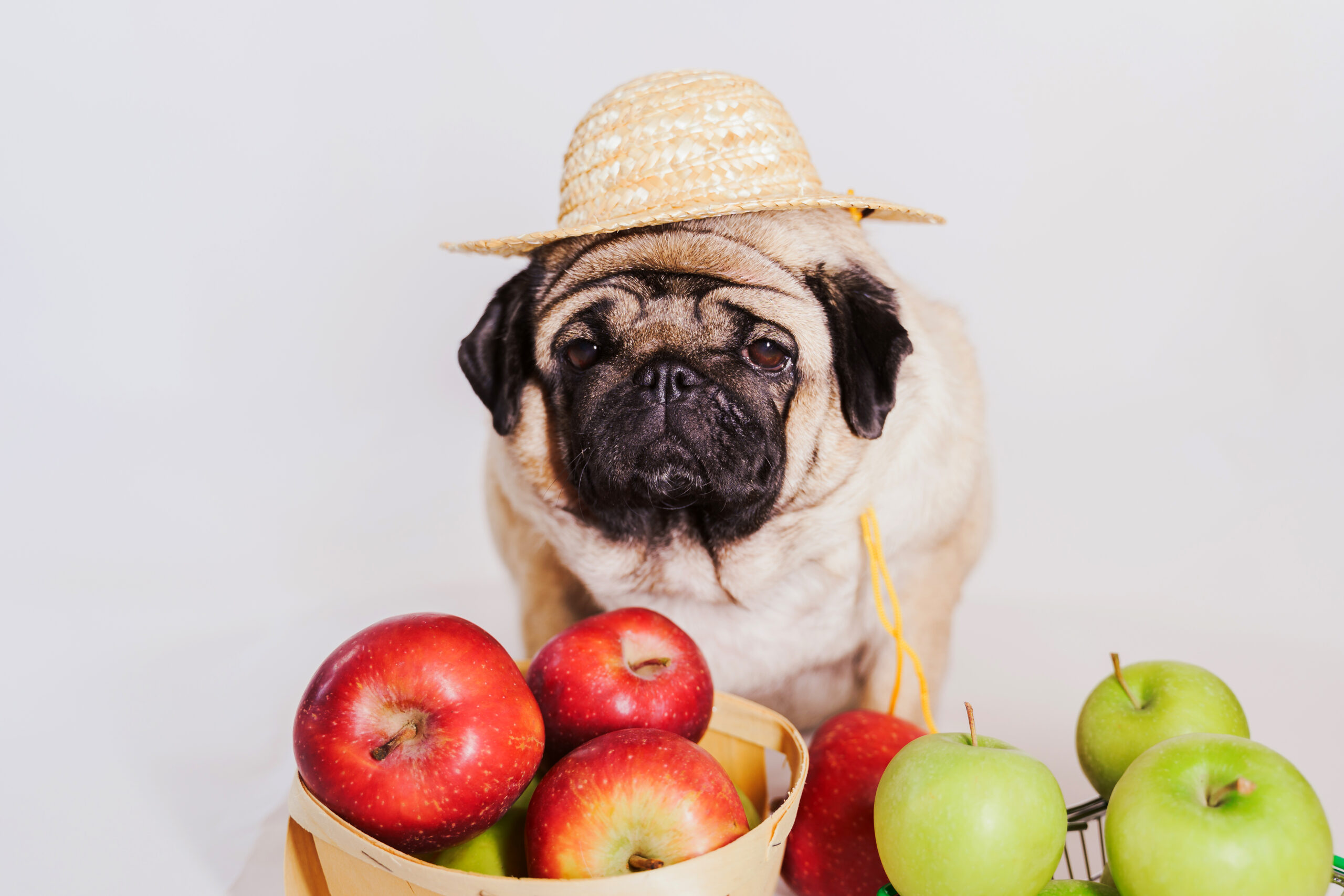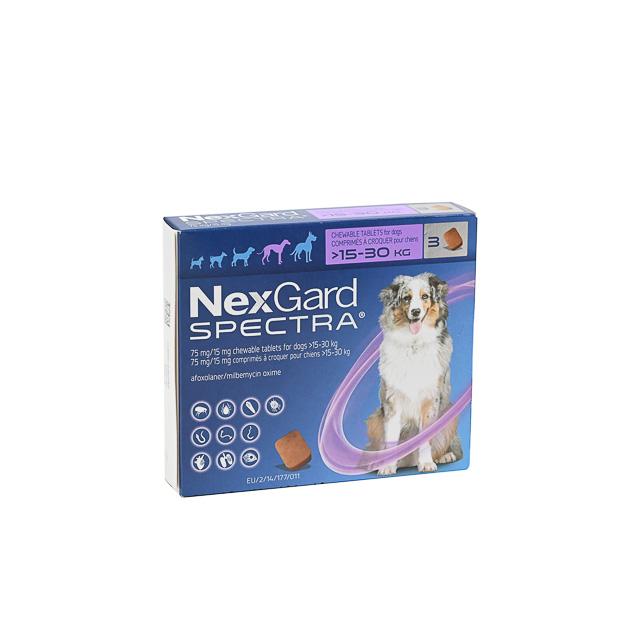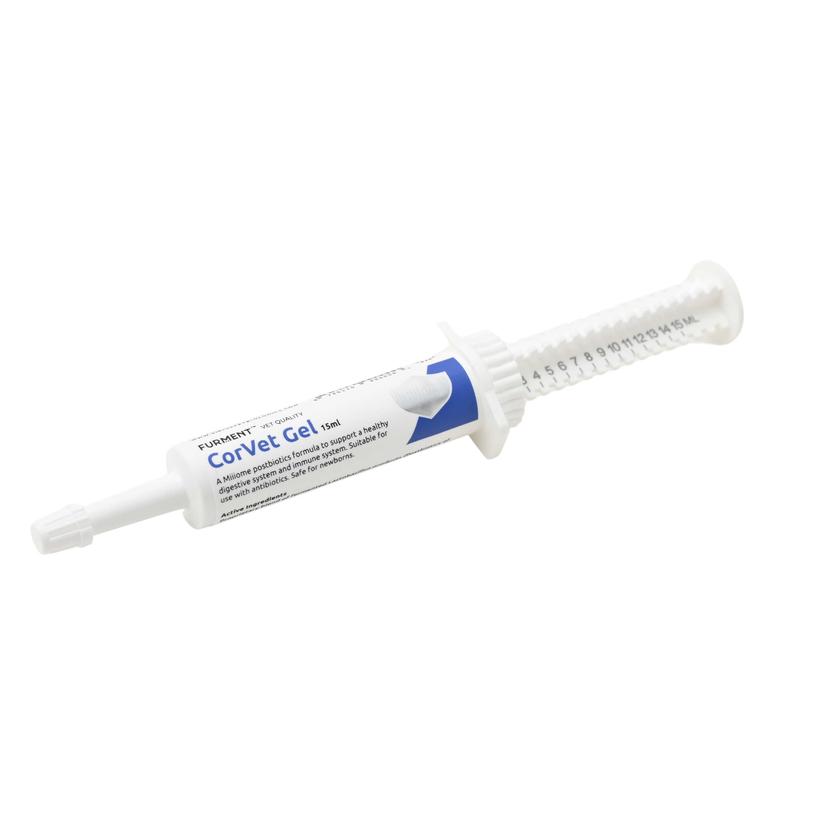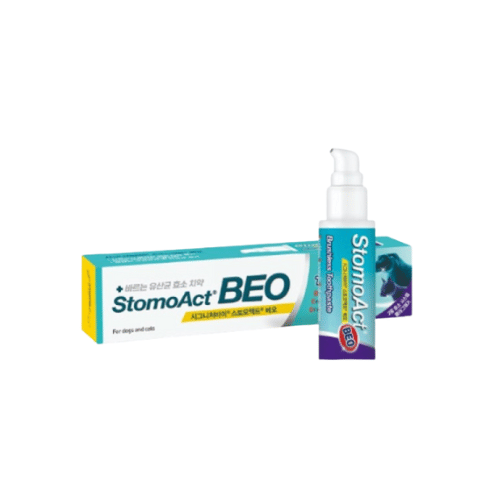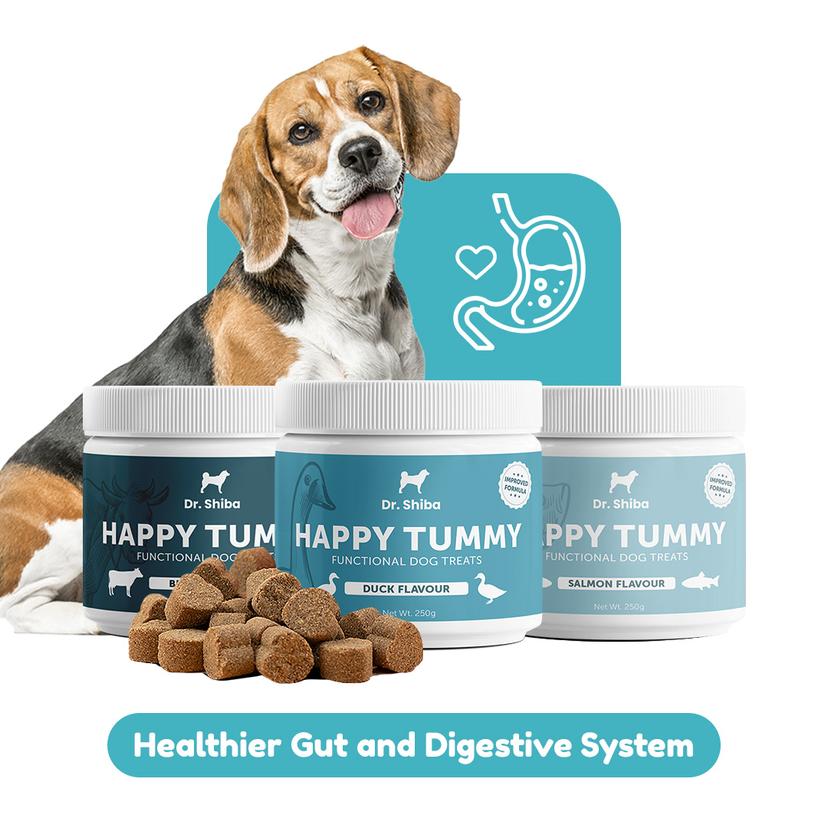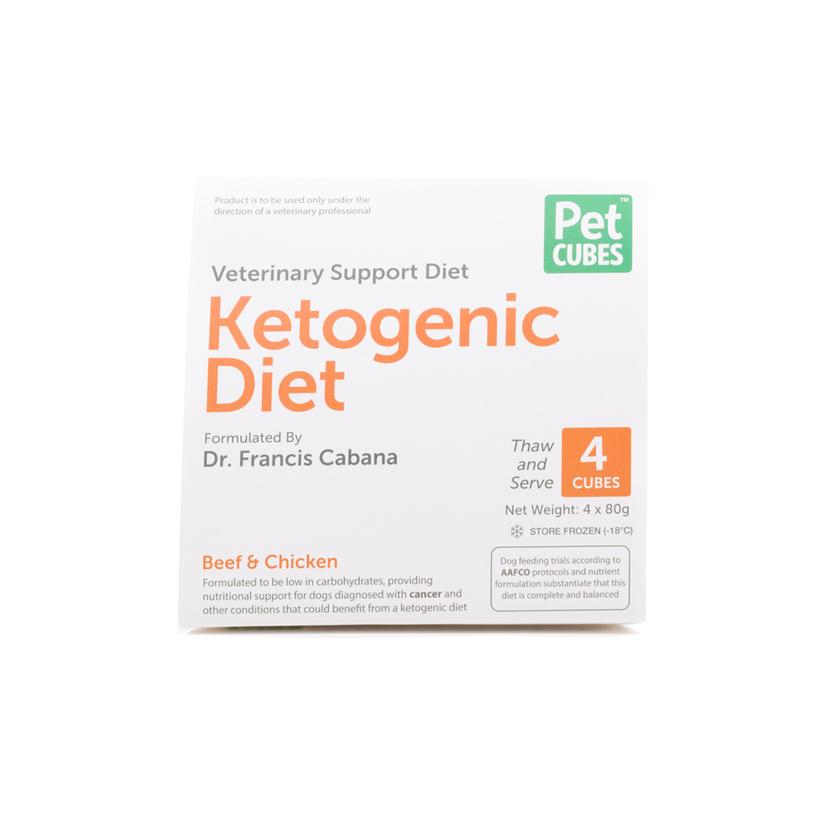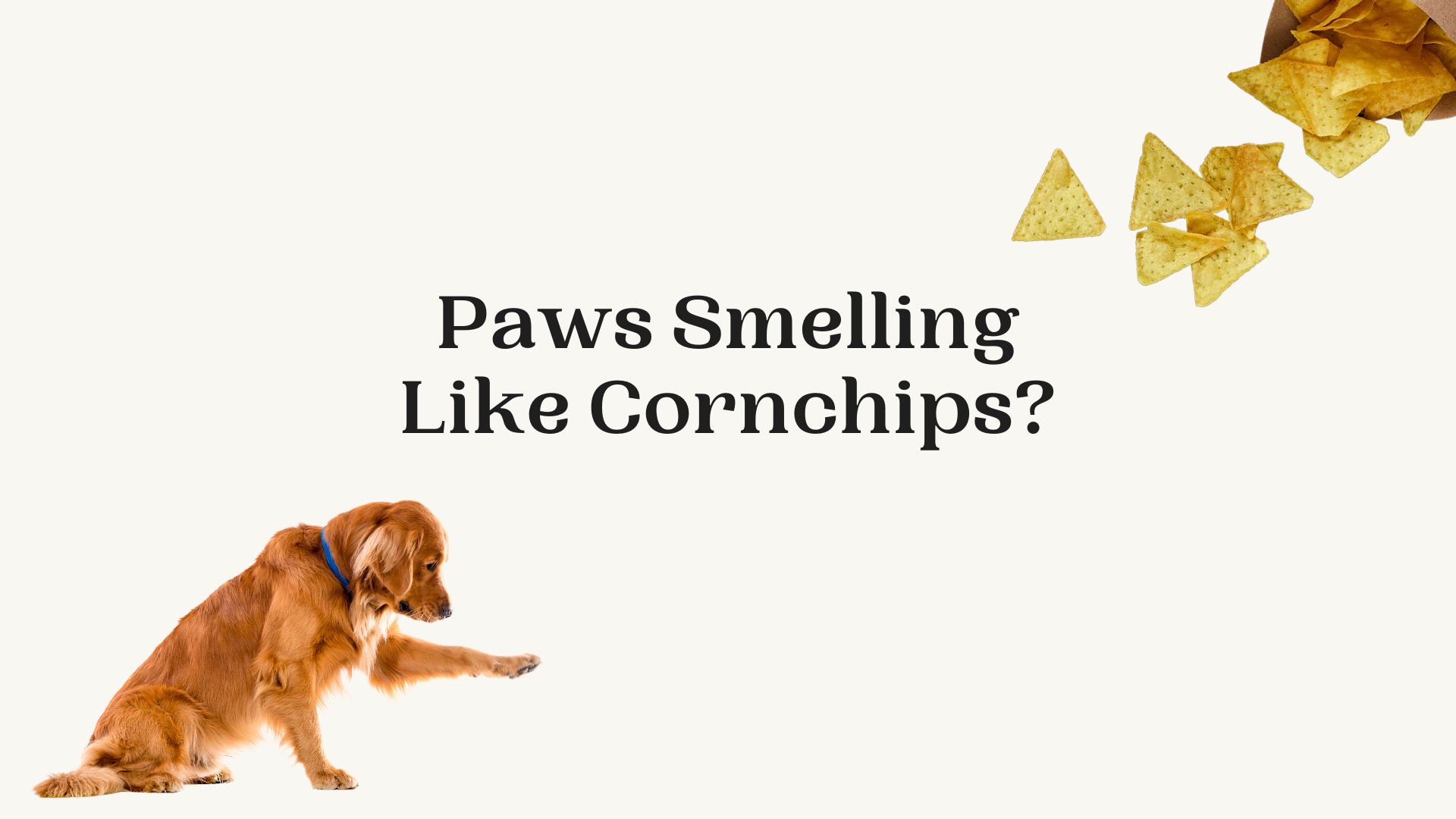Having fruits for dessert is commonplace in our Asian culture where a variety may be peeled, cut and portioned to be shared with fellow family members, and because our furry friends are very much part of the family, we share it with them too. However, It is important to note what are the fruits that are acceptable or harmful to your pets, in order to not potentially cause them any serious ailments.
Generally, fruits contain beneficial antioxidants, vitamins and minerals which could help to improve skin and digestive health of our furry friends. It can also be a great way to replenish fluids in your pet if given in appropriate amounts, especially for dogs that do not like to drink much water. Adding water to a bowl of fruits can help to get much needed fluids in. Unlike vegetables, fruits should be taken like treats, and should not exceed 5% of your pet’s overall total food intake.
First, let’s look at the types of fruits your furkid NEEDS TO AVOID.
What fruits should I not feed to my pet dog?
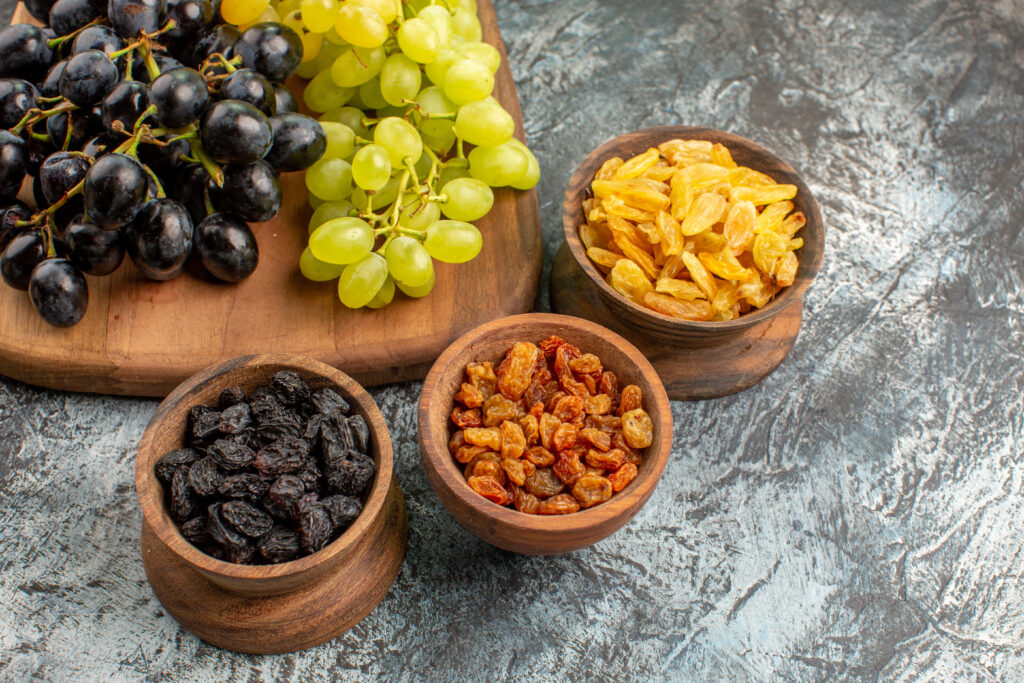
Grapes, raisins, sultanas
Grapes, raisins and sultanas contain tartaric acid which when ingested, could cause vomiting and acute renal damage. Signs include vomiting and diarrhea, lethargy, loss of appetite, increased drinking and urination, as well as abdominal pain.
It is not known clearly why they are toxic to dogs. The best way to manage a pet that has ingested grapes is to seek veterinary attention immediately, so vomiting can be induced to prevent the fruits from being broken down by the body and absorbed.
A measure of your pet’s kidney values within 3 days of ingestion would be recommended to check for potential damage to the organ.
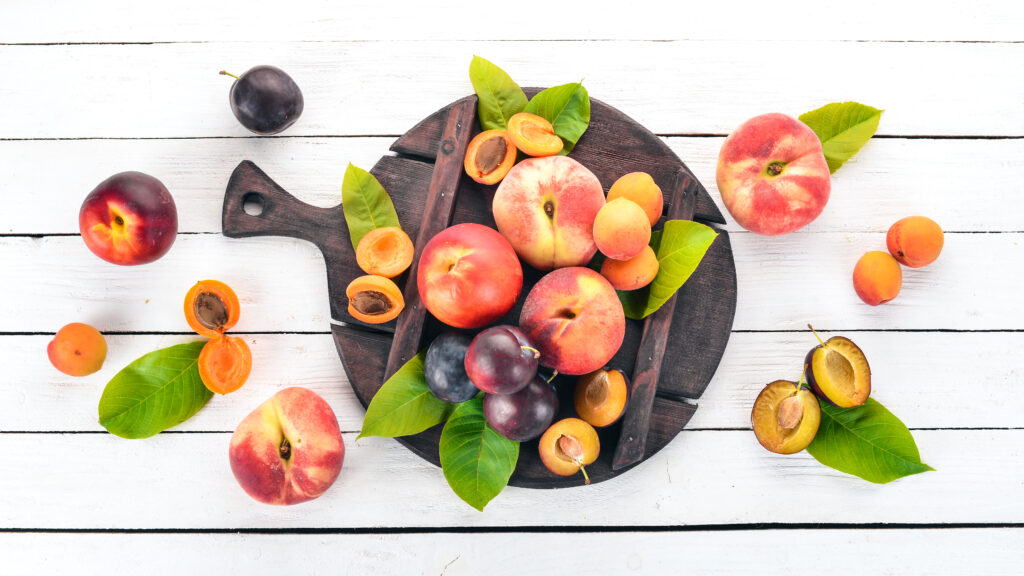
Fruits with pits or other inedible parts
Stone fruits such as peaches, cherries, plums and nectarine can cause a multitude of issues for dogs. If unremoved, the pits of each fruit can be hard enough to cause partial fractures of the teeth. It is not only painful but may warrant the removal of the entire tooth if extensive enough.
When swallowed, pits with sharper edges can cause physical damage to the sensitive lining of the oesophagus, leading to ulcerations. Its shape also makes it easy to cause an obstruction along the oesophagus, or if the pit manages to pass through the stomach, it may become fully obstructed in the dog’s intestinal tract. A foreign body obstruction in the intestinal tract would warrant surgery for removal. Signs include active vomiting, diarrhea, abdominal tenderness, and reduced or inappetence.
Small amounts of cyanide can be found at the center of the fruit’s pit (the true seed). Exposure happens when the pit is broken through chewing and ingested. This is harmful to your pet as cyanide poisoning can cause your dog to have difficulty in breathing, salivation and even convulsions. Do contact your veterinarian immediately if your pet manages to break the pit.
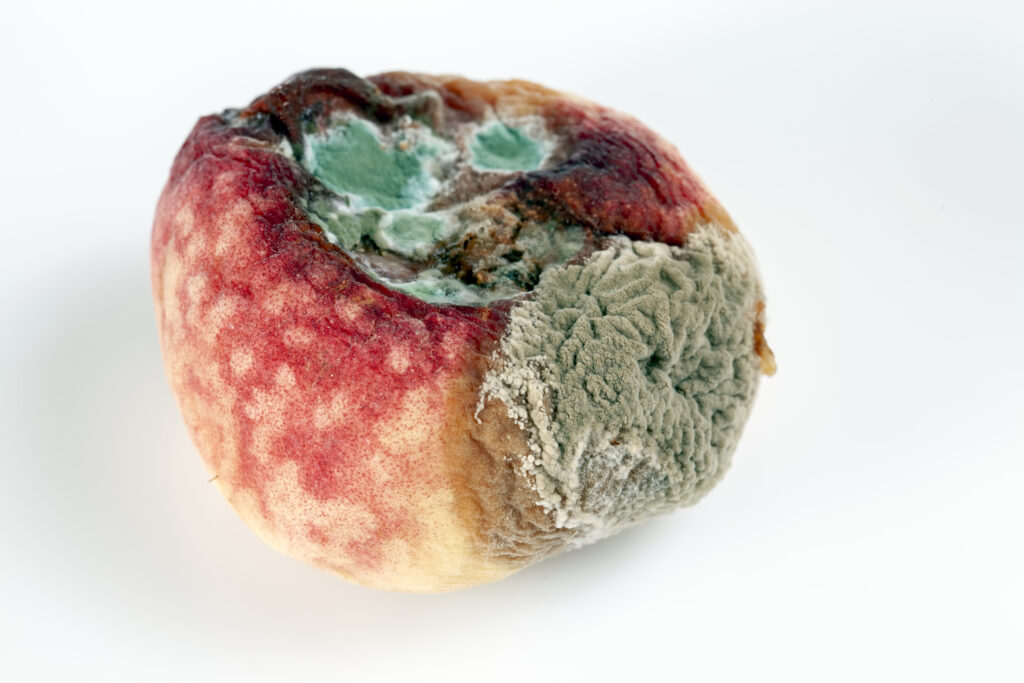
Stale and mouldy fruits
Fruits have the potential to age quickly, and ingesting mouldy fruits can cause a variety of gastrointestinal issues for your pet dog, such as vomiting and diarrhea. Fruits that have aged can also undergo fermentation, producing alcohol as a by-product. This would definitely not be ideal for your pet to ingest!
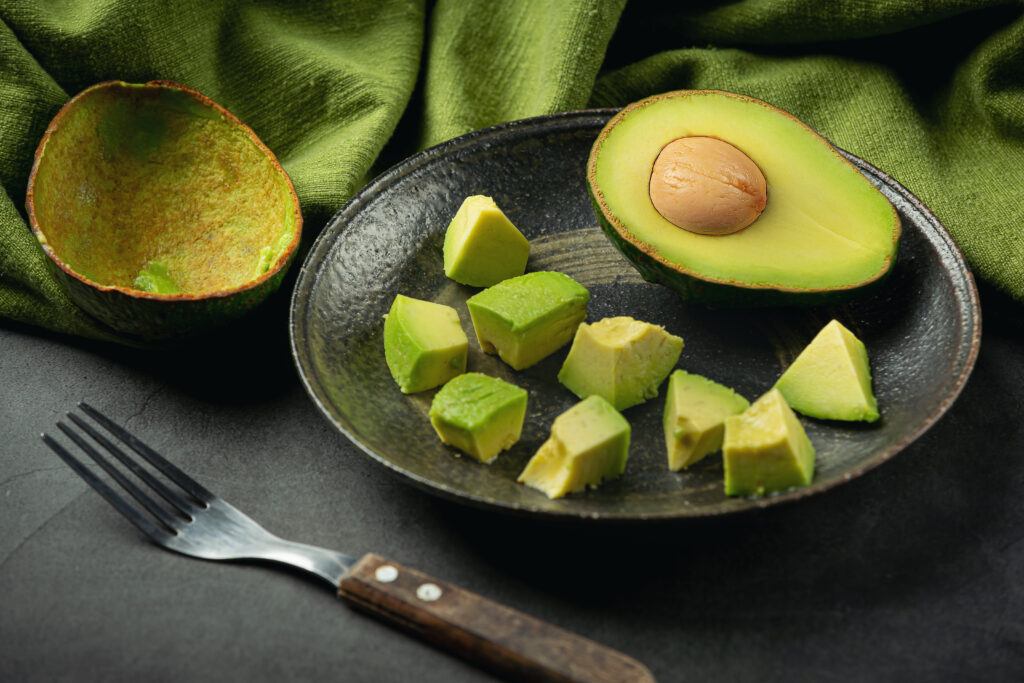
Avocados
Parts of the fruit like the pit, skin and leaves are toxic to dogs as they contain persin, and can cause vomiting and diarrhea. The flesh may contain less amounts, but it may not be worth the risk.
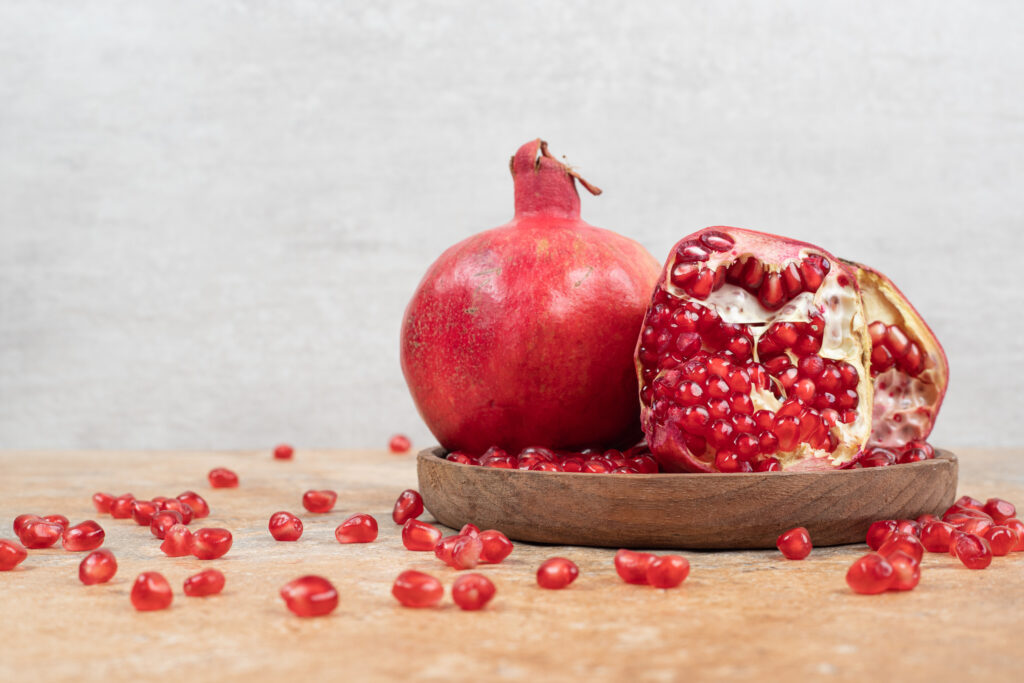
Pomegranate
Although the fruit itself is not toxic, it may be safer to avoid them. Rinds and stems of fruits should not be eaten to prevent obstruction, and the seeds in a pomegranate fruit contain high quantities of tannins which can cause gastrointestinal issues for your pet dog.

Pro Tip
If your pet is experiencing symptoms such as vomiting or diarrhea after consuming fruits that are not suitable for them, a great way to detoxify your pet quickly would be to use activated charcoal tablets which will help provide them relief by absorbing the toxins. However, if the symptoms persist, it would be best to seek out a professional vet for a deeper diagnosis.
Fruits that are safe for your pet’s consumption (with conditions):
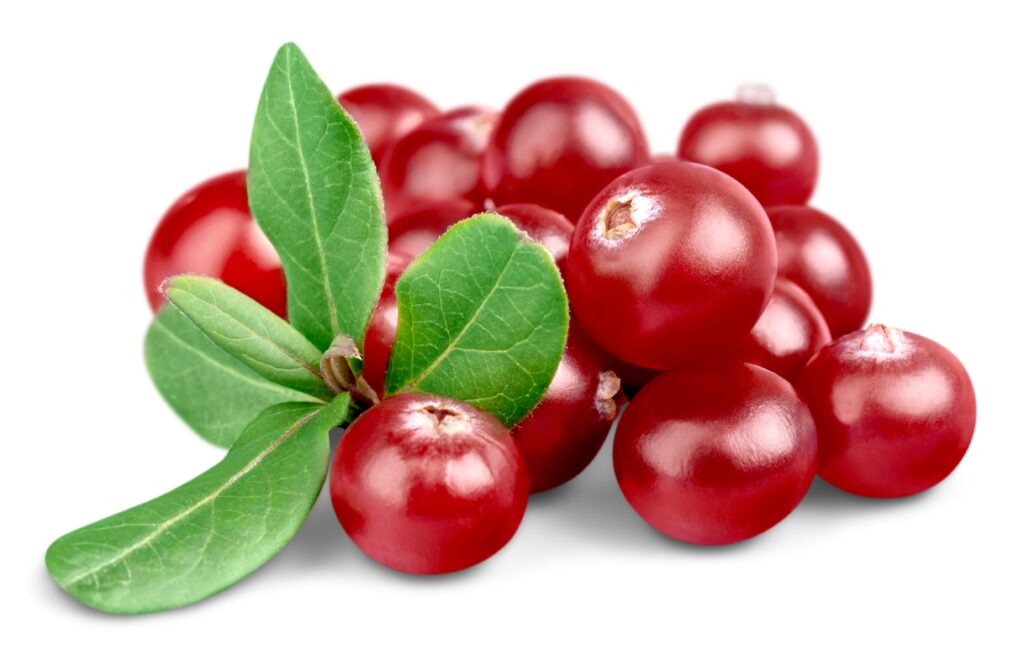
Cranberries
Cranberries are great low calorie treats that contain vitamin C, potassium and fibre. Can be served fresh or dried for your dog.
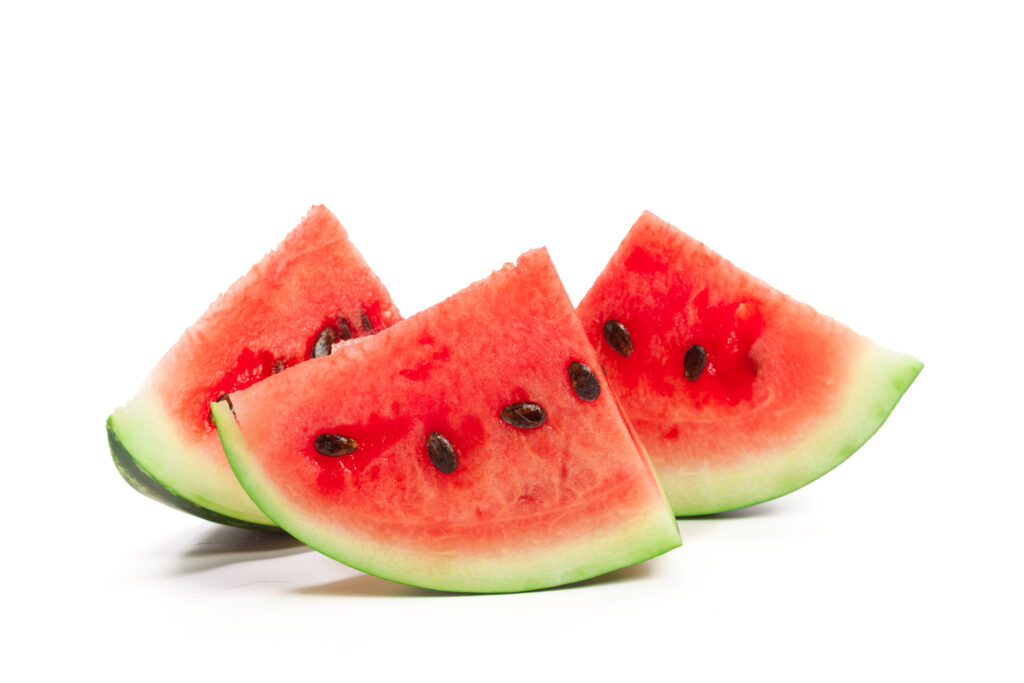
Watermelon
Watermelons are a great source of hydration and vitamins (A, C, B5). However, seeds and rinds should be removed to prevent your dog from potentially choking on them. It is also best to cut them into bite sized pieces before serving.

Pro Tip
Are you and your dog already fans of the watermelon fruit? Be sure to check out the watermelon bubble luggage for pets by VETRESKA that represents the pride of you and your dog’s love for watermelons!
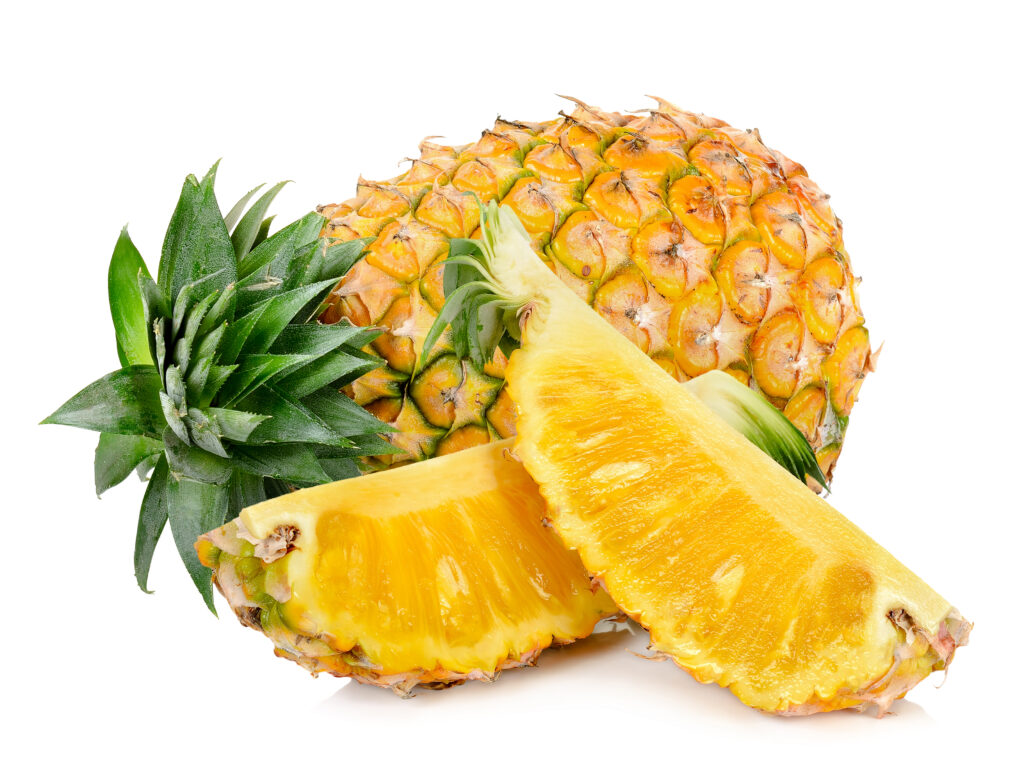
Pineapples
Pineapples are a rich source of vitamin C, potassium, and iron. It is naturally high in sugar content, which means that it is not a suitable treat for diabetic dogs and has to be served in moderation. The skin and core of the fruit are also not suitable for ingestion so be sure not to serve them.
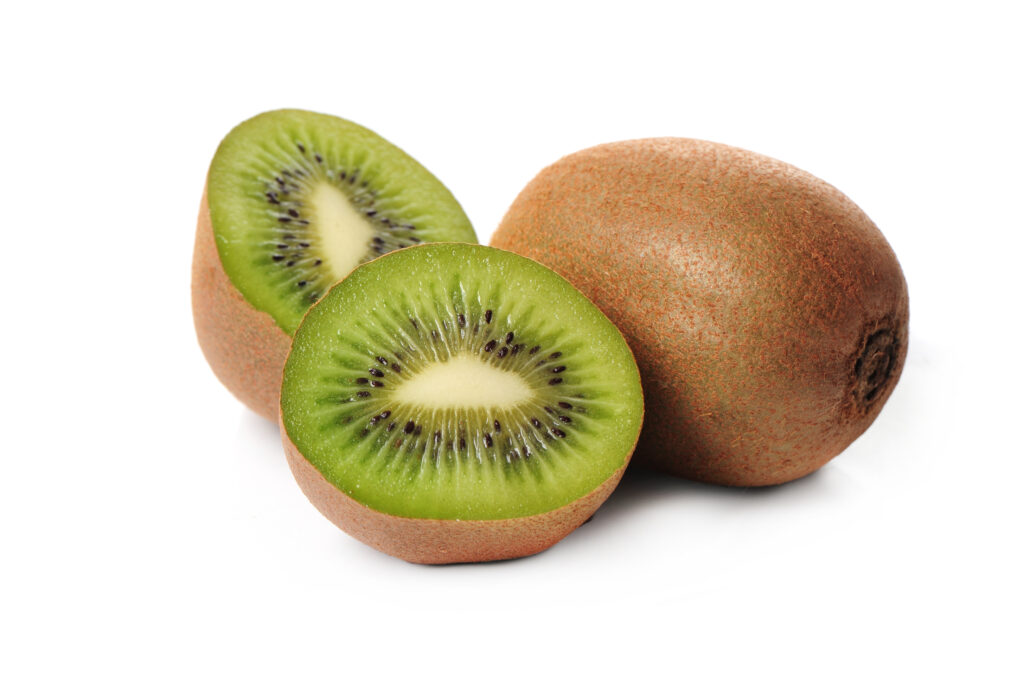
Kiwi
Kiwis are a good source of fibre, vitamin C, K, and E. It also contains antioxidants that can aid a dog’s immune system. Its high fibre content can be helpful for constipation, but should be taken in small amounts due to its laxative effects. Not suitable for dogs with kidney issues.
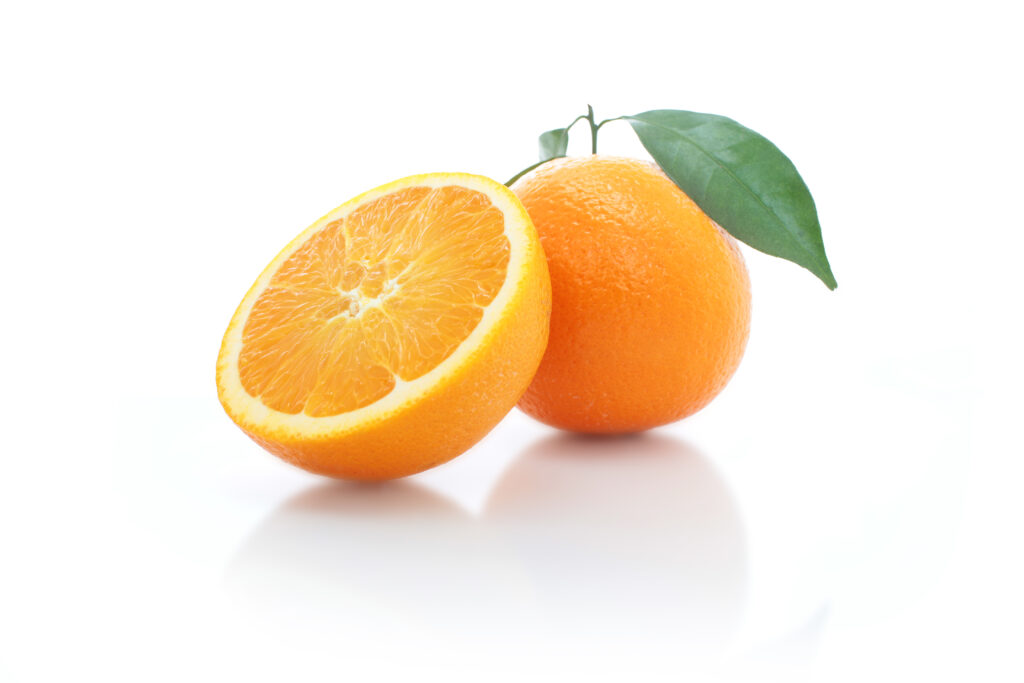
Oranges
Oranges are an abundant source of vitamin C, minerals and antioxidants. Be sure to remove seeds and peel the orange before serving them to your pet dog.
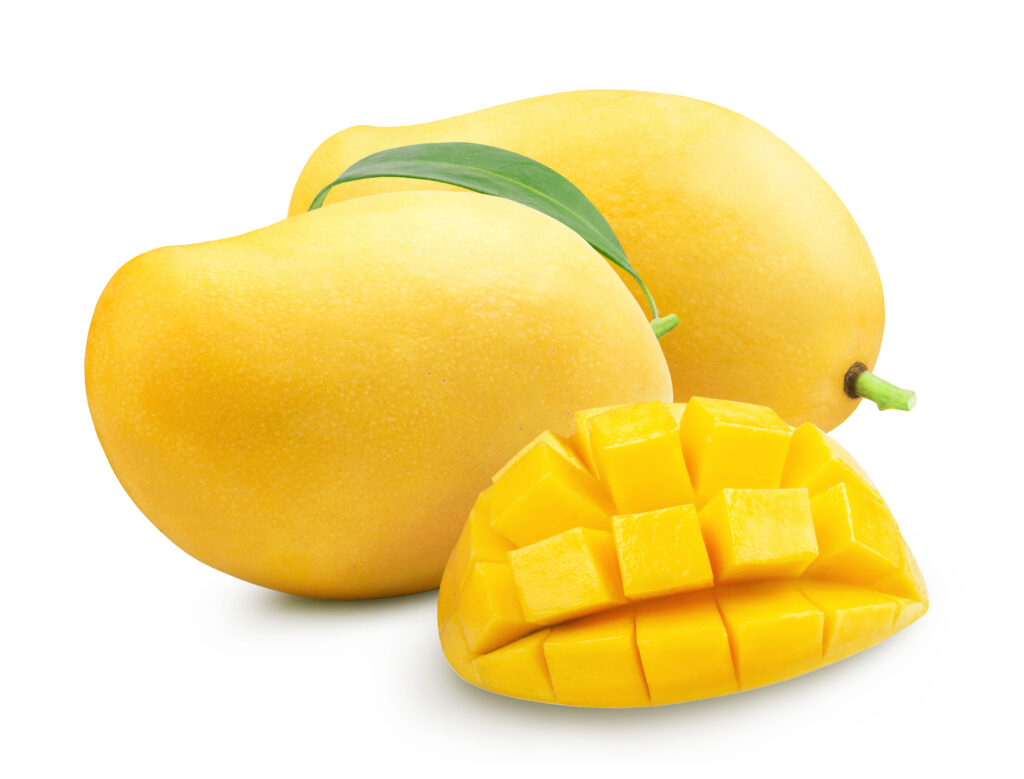
Mango
Mangoes are rich in vitamin A, C , B6, and E. The pits must be removed, as they contain traces of cyanide. The mango peel is also not suitable for dogs to consume.
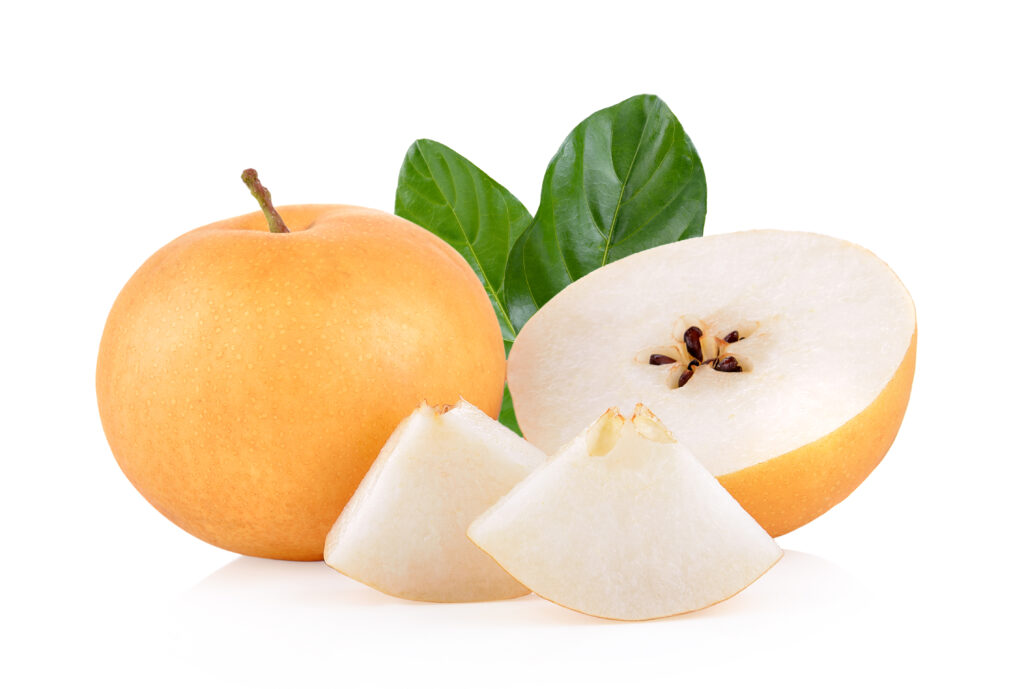
Pears
Pears contain lots of Vitamins C, K and copper. Seeds should be removed as it contains traces of cyanide. The core of the pear should also be removed. Pears are naturally high in sugar. Hence, they are not a suitable treat for diabetic dogs and should not be served in large quantities per serving.
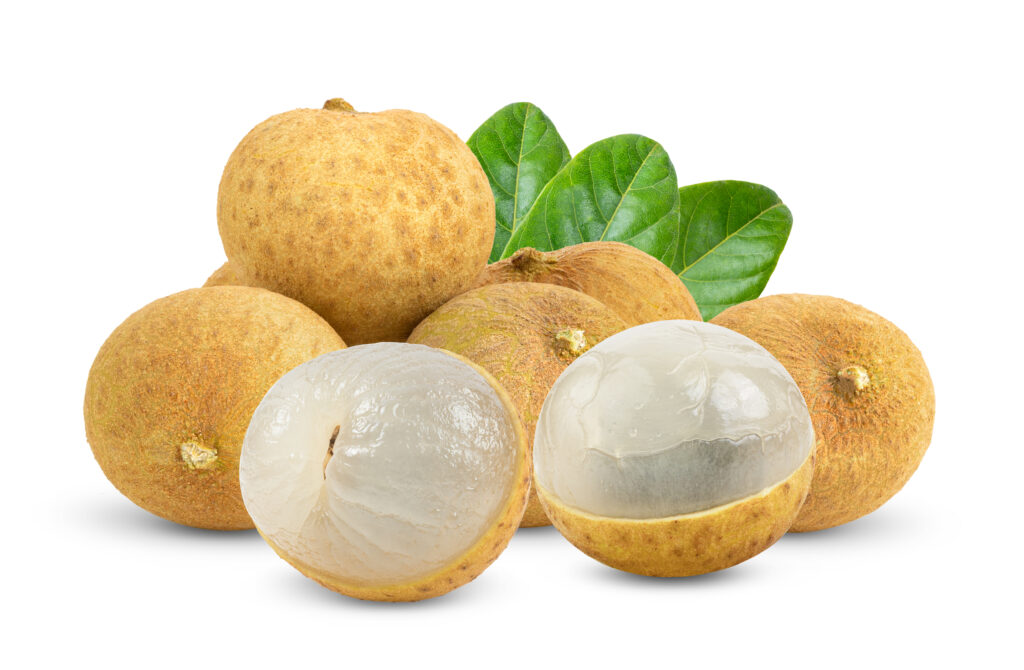
Longan
Longans are a great source of fibre. However, their seeds contain saponins which are toxic for dogs, so it is best to remove the seeds and shells before serving them. Longans are also naturally high in sugar content, so be sure not to feed them to your dog if it is diabetic.
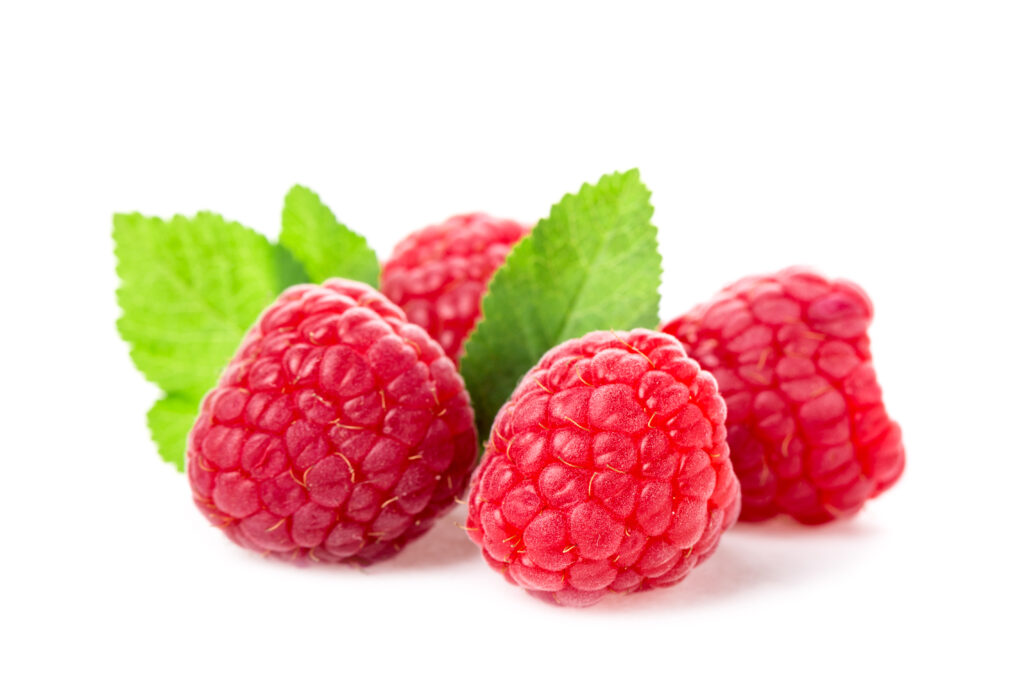
Raspberries
Raspberries should only be served in small amounts as it contains traces of xylitol which can be harmful to the gastrointestinal system if ingested in large amounts. It is also a fruit that is not suitable for dogs with kidney issues.
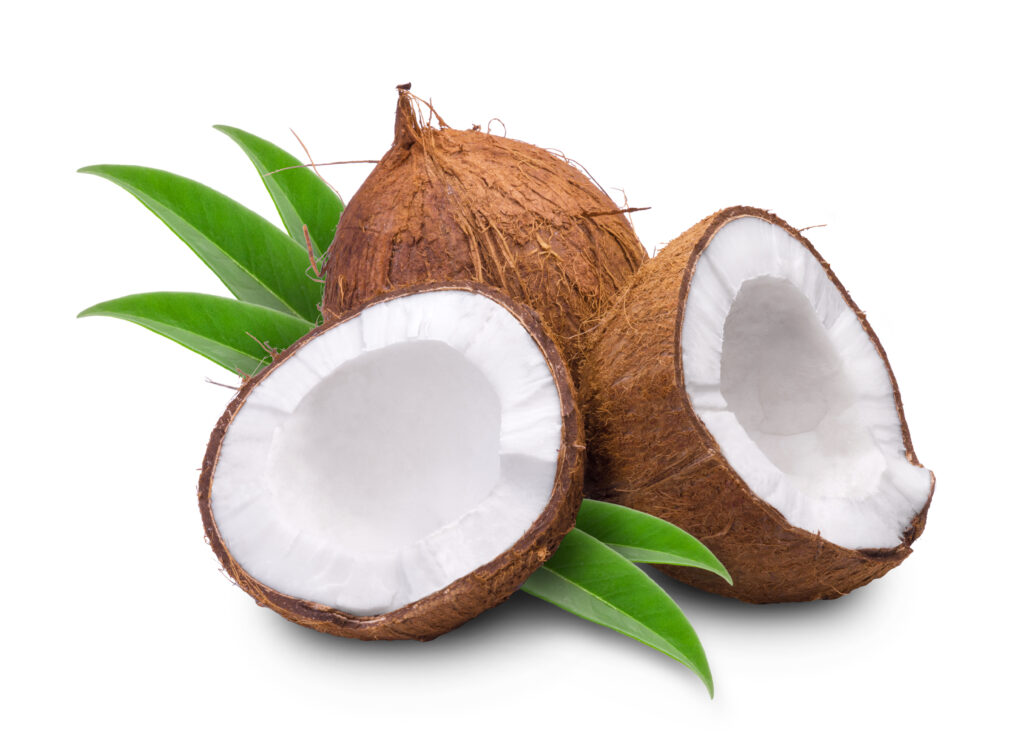
Coconut
A coconut’s pulp should also only be served in moderation as it contains high calories and fat, which can contribute to excessive weight gain. It is also a fruit that should not be fed to dogs with pancreatitis or a sensitive gut.
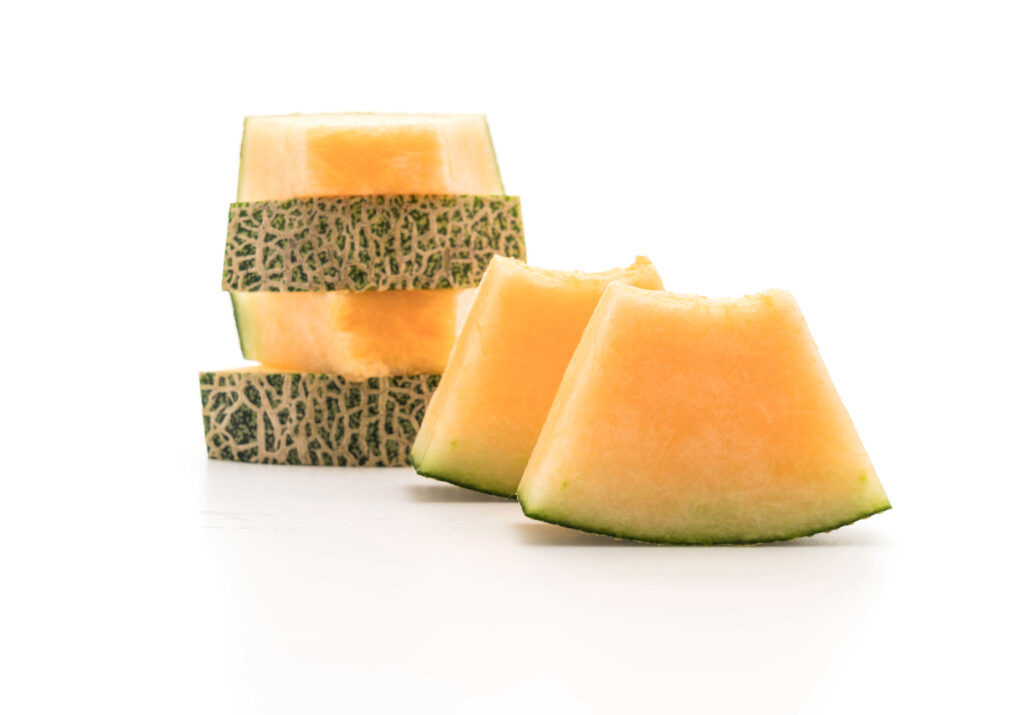
Honeydew
Honeydews have high fluid content, contains vitamins B6, B12, C and E. They are also high in sugar. Hence, it is not a suitable treat for diabetic dogs and should never be given to your dog regularly. Seeds and rinds should be removed before giving them to your pet dog.
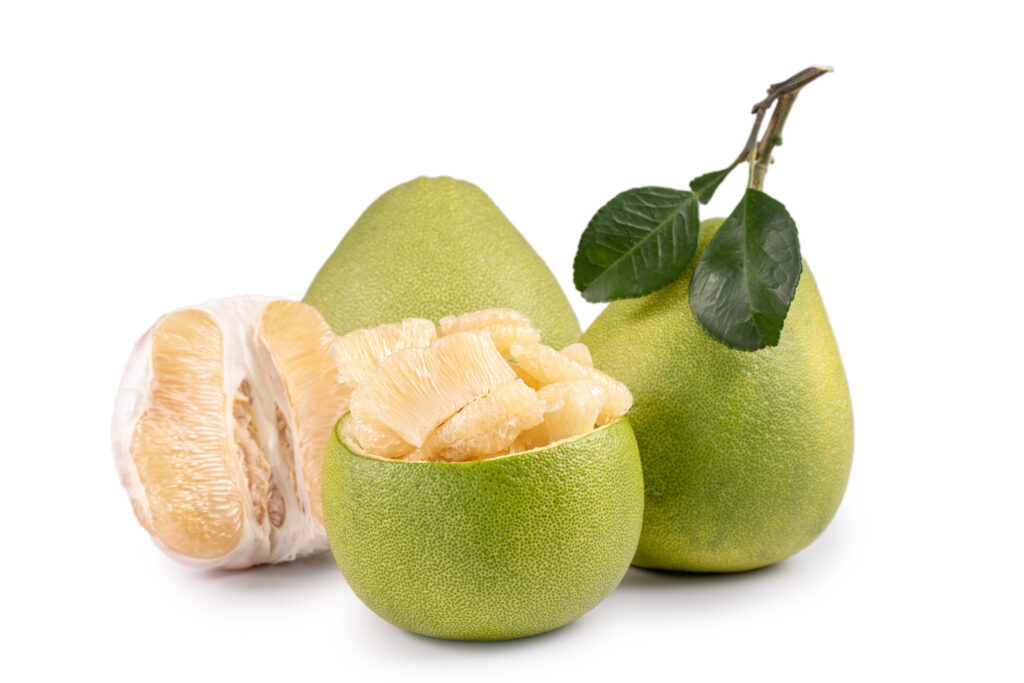
Pomelo
Pomelos are rich in copper, potassium, vitamin C. They are however, naturally high in sugar content and should not be given to diabetic dogs.
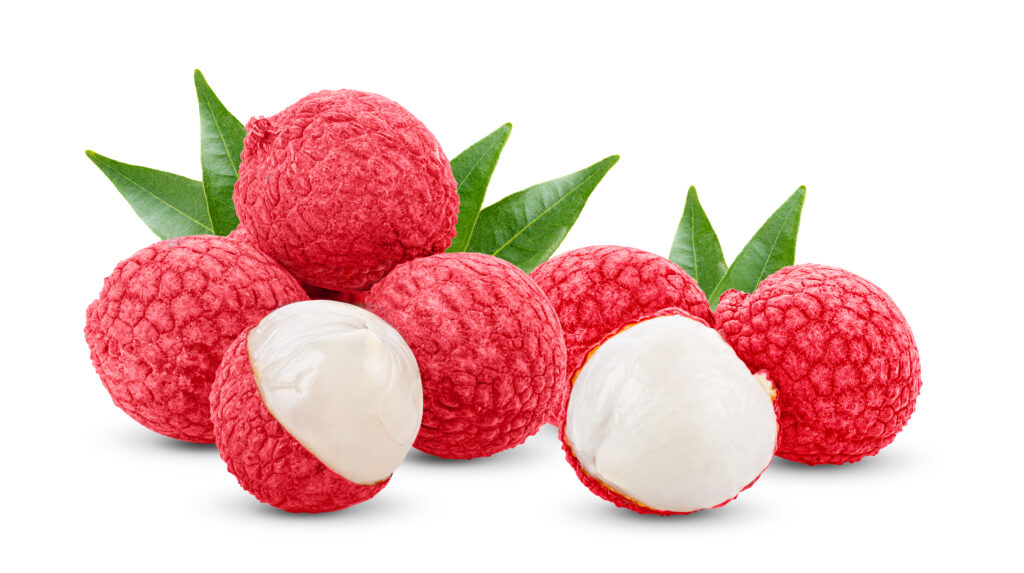
Lychee
The lychee fruit contains fibre and vitamin C. However, It needs to be served ripe as unripe lychees could be toxic to both humans and dogs. Skin and the pit of the fruit needs to be removed. Lychees are also rich in sugar, so be sure to not feed them to your dog if it is diabetic.
Do note that canned lychees that are filled with syrup are not recommended to be served to dogs.
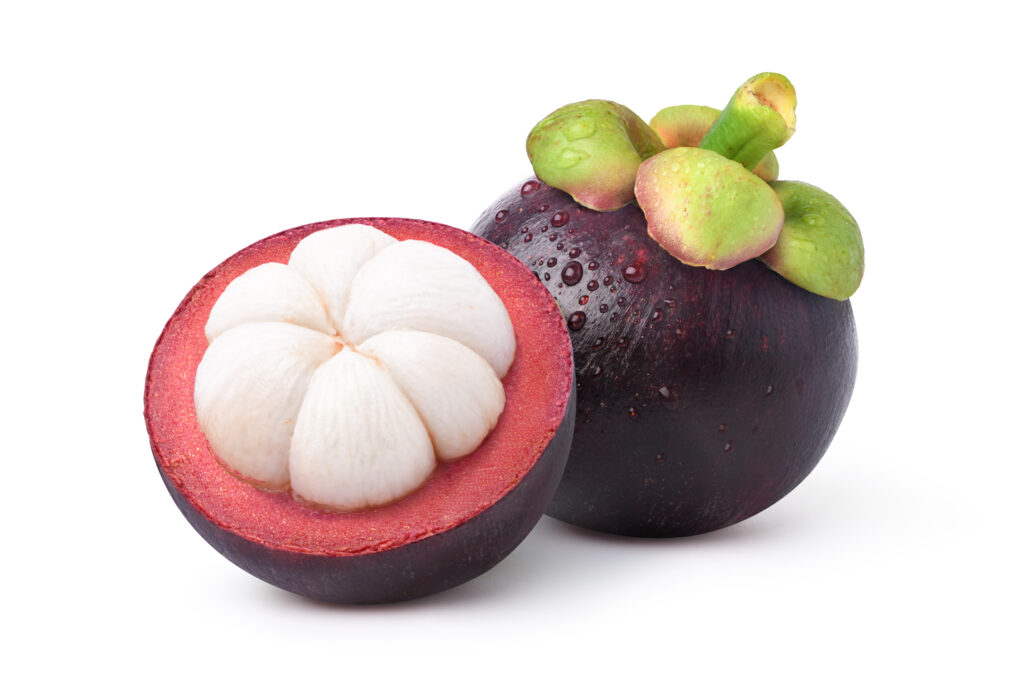
Mangosteen
A mangosteen’s flesh contains fiber, vitamins and minerals. But, be sure to remove the pit and rind before serving it to your dog. It is also another fruit that is high in sugar content. Therefore, it is not a suitable treat for diabetic dogs and should not be a part of a regular diet.
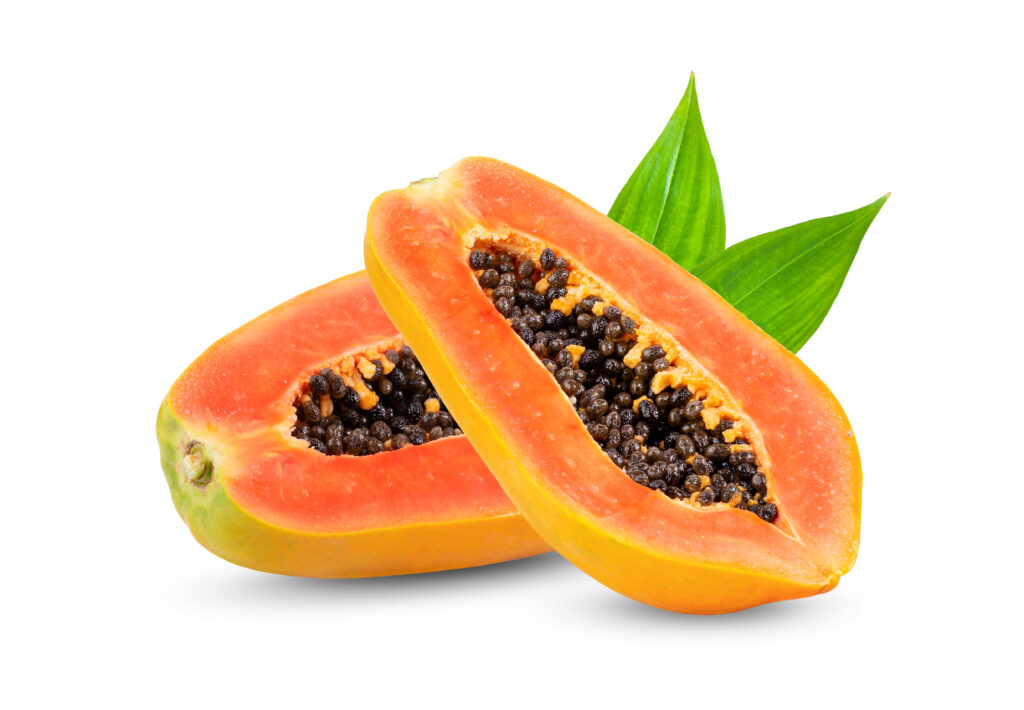
Papaya
Papayas are a great source of vitamins A, C, E, K, potassium and calcium. The fruit is also rich in fiber and the seeds have to be removed as it contains cyanide which is harmful for dogs.
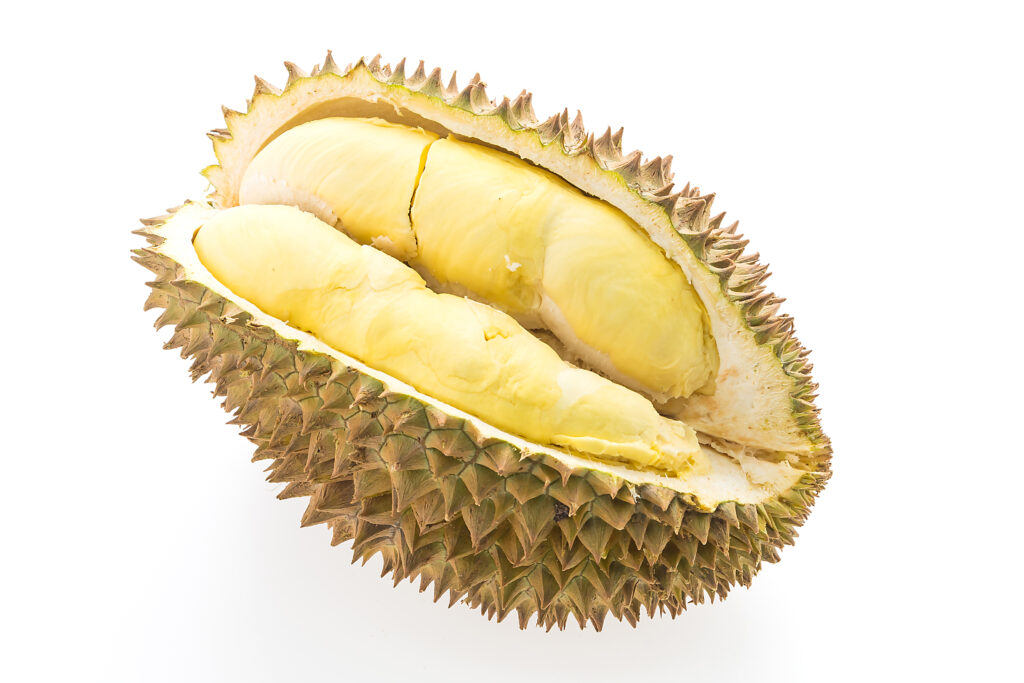
What about the King of Fruits, the Durian?
All hail the king? Durians contain vitamins A, B6, C and minerals such as calcium, magnesium, iron and zinc. However, it is generally not recommended to serve durians to dogs in normal portions as it is extremely high in fat and sugar. Hence, it is very important to note the little quantities of durian flesh you are planning to serve to your dog. It is also a bad idea to serve them to dogs with gut sensitivities.
The seeds, rind, leaves and stems are absolutely inedible and if your dog has ingested any of it, it is highly recommended to seek veterinary attention immediately.
Just like us, dogs can develop durian breath after consuming them, so teeth brushing would be a good idea. However, if your dog detests the routine of teeth brushing, be sure to check out the Lepote iBanechak Oral Health Strips (Banana) and StomoAct Beo Brushless Toothpaste available in ZumShop to remove that bad breath easily without the need of a toothbrush!
Conclusion
In general, fruits that contain pits, seeds, rinds, and stems should be prepared carefully, as their content could be toxic to dogs.
Fresh fruits can be blended into a paste after they are peeled and sorted with water added to the mix to help dilute the natural sweetness of the fruit, especially for fruits with high sugar content.
Fruits with high fibre content are a natural way to get your pet’s digestive system going, and beneficial for dogs who regularly excretes hard stools.
When introducing new fruits, a small amount should be given at each time and changes in bowel movement has to be closely monitored. This is especially important for dogs with known gut sensitivity, as little changes in their diet can set off a multitude of gastrointestinal problems.
Excessive quantities of any fruit with its naturally high sugar content can also cause issues, so fruits should always be given in small quantities.
Overall, fruits can be a good source of fibre, vitamins and minerals that are beneficial to your pet’s overall health as long as they are suitable to be consumed by your dogs. Fruits are also an easy way to replenish fluids, and could be a fun treat for your pet! However, if you are still unsure about the types of fruits that can be served to your dog due to its unique health conditions, be sure to engage our professional vets online at ZumVet to provide you a deeper diagnosis about your dog’s diet.


